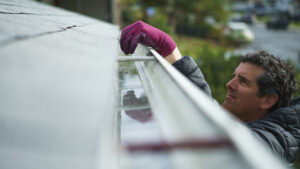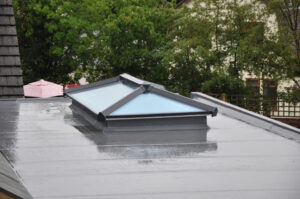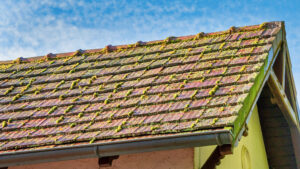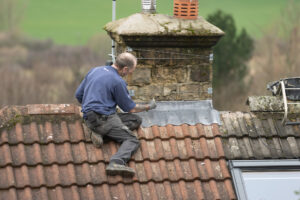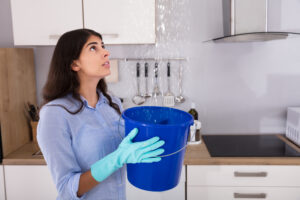You might be surprised to learn how badly strong winds can damage your roof! Your property and the surroundings can sustain damages because of the strong winds – power lines may be torn down, trees may be uprooted, and branches may be broken away. However, these are extreme damages that a house may sustain after storms. Even regular strong winds such as those experience in the Baytown area may cause some damage, such as the shingles becoming loose or coming off. At times, winds can be so disastrous that even new shingles can be torn off by strong winds.
Roofs are extremely vulnerable to wind damage, especially because strong gusts don’t always hit them evenly. Instead, the margins of the roof or portions of the roof that are already loose are usually damaged by the wind as they can readily tear apart loose shingles and make the entire roof vulnerable. Debris and falling objects caught in the winds also cause damage to the roof and eventually begin to leak or decay. WABO Roofing provides free inspections and estimates on damaged roofs.
Sings of Roof Wind Damage
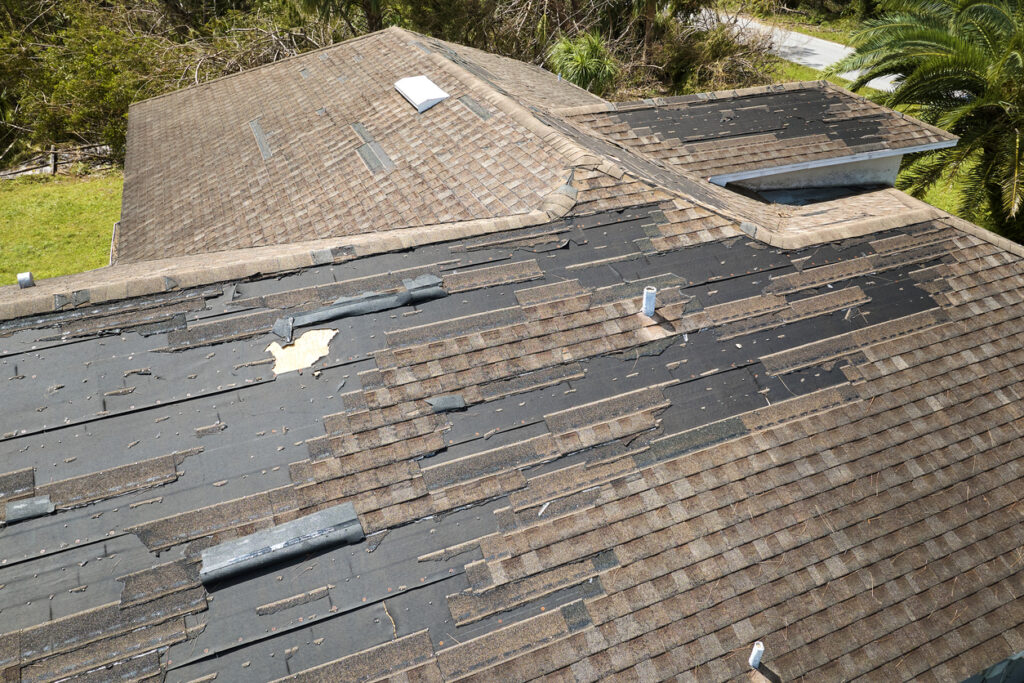
Exposed Underlayment
Storm or strong winds tend to uproot the edges of the shingles and expose the underlayment. Look for signs where the underlayment is exposed, as this is where the water will infiltrate your home, which cause structural damage to the building. If ignored for a longer time, it will also stain your walls.
Loose or Damaged Flashing
Check the flashing of the roof, especially the vents, chimney, and skylights – if they happen to be loose or there are some signs of damage. Any apparent damages can weaken the waterproofing ability of the roof and cause moisture to penetrate and damage the interior walls of the home.
Cracked or Broken Roof Tiles
Homes or buildings that have roof tiling should also check for any damages to the roof tiles. If the tiles are broken or damaged, they need to be replaced with fresh ones to ensure the building is safe and any potential issues are avoided.
Shingles
One of the main signs of roof wind damage is lifted or displaced shingles. On inspecting them, you may find that the shingles are cracked, curled, or torn off. This tends to make the sturdiness of the roof vulnerable to water infiltration and other elements. You should also look for granules that may have chipped off from shingles and landed in the gutters or at the base of downspouts. This indicates erosion or deterioration.
Roof Leaks
Signs of discoloration or water stains on the walls, ceilings, or the space in the attic are clear signs that the roof is leaking. Even the smallest water stain should not be ignored as it will spread, and the potential damage will be expensive to repair.
Gutter and Downspout Damage
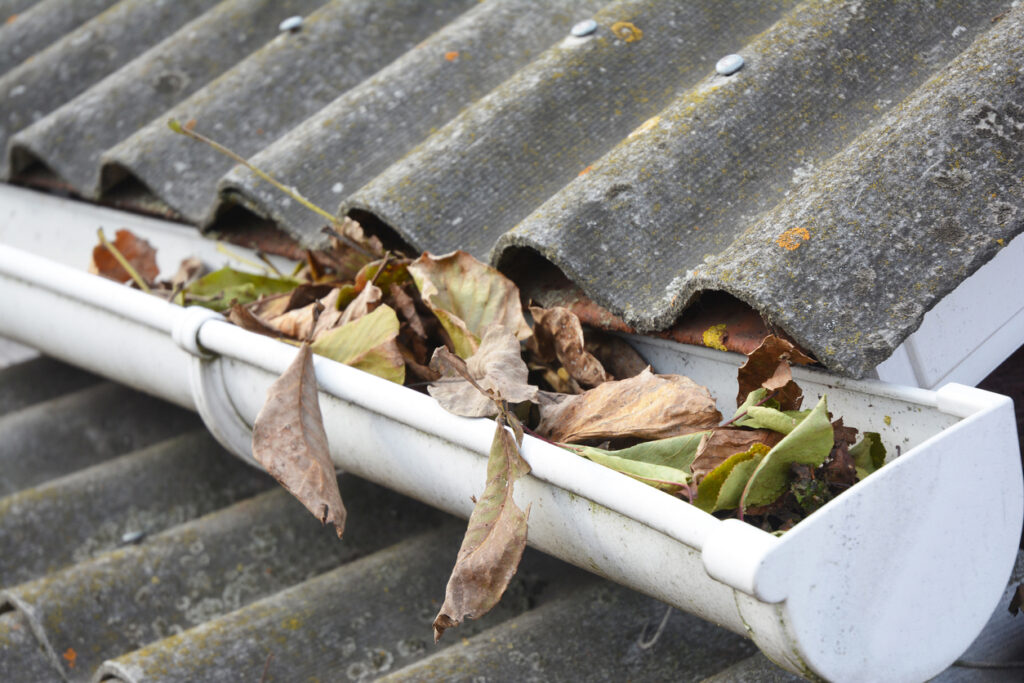
The downspouts and the gutters should be checked for any sign of damage, such as – misalignment, detachment, or bending, which may be caused by the impact from the winds. If the gutter system is not functioning properly, water will stagnate and infiltrate the roof.
Indoor Drafts and Temperature Fluctuations
After the wind storm, you must also stay alert for any signs of changes in the air quality within your home, fluctuation in the temperature, or drafts, as they can suggest potential gaps in the roof. The living areas and the attic space must be thoroughly examined for any points of heat loss or air infiltration.
Soffit and Fascia Damage
The fascia and soffit should also be inspected for cracks, peels, or detachment, which can be caused by strong winds. Damaged fascia and soffit directly impact the ventilation system of your home and make it vulnerable to moisture. They should be repaired immediately to prevent any further damage.
Tree Limb Damage
Strong winds are likely to carry branches and tree limbs. They are extremely harmful and cause a lot of damage to the roof. Look for punctures, dents, or any structural damage that may have been caused by the impact. Leaving a roof without inspecting it after a storm can be hazardous as these damages amplify with time and cause water leaks or compromise the structural integrity of the building.
Structural Integrity Issues
The structural components of the roof, like the trusses and rafters, should be checked for signs of shifting, bending, or warping. These components are responsible for keeping the building stable and safe; hence, any damages should be immediately fixed.
Some Steps to Mitigate Roof Wind Damage
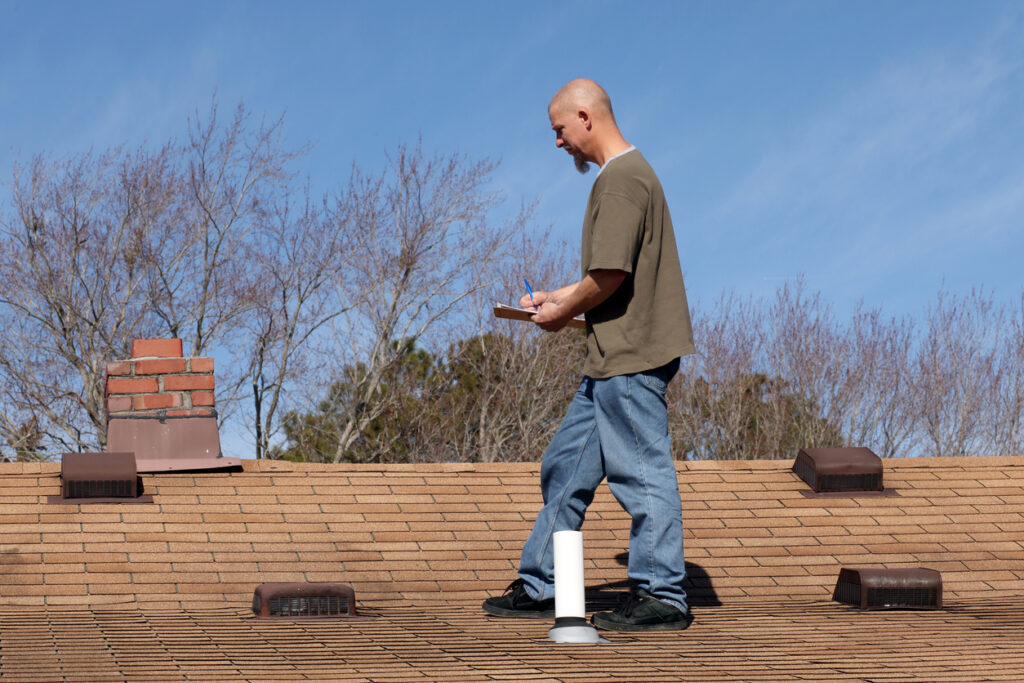
Schedule Roof Inspections
You must schedule regular roof inspections, especially after there has been a wind storm. Professional roofing company such as us – WABO Roofing, can easily identify any damages on your roof and have them fixed before they can cause more damage to your home. However, timely inspections are helpful, and they can easily avert any wind damage.
Implement Regular Maintenance
You must also make sure to employ professionals and have them perform the required maintenance, such as removing debris, cleaning the gutters, etc., to enhance the durability of your roofing system.
Secure Roofing Materials
Make sure that the roofing materials like tiles, shingles, and flashing are secured properly in their place, as they help stand guard against the harsh winds.
Trim Surrounding Trees
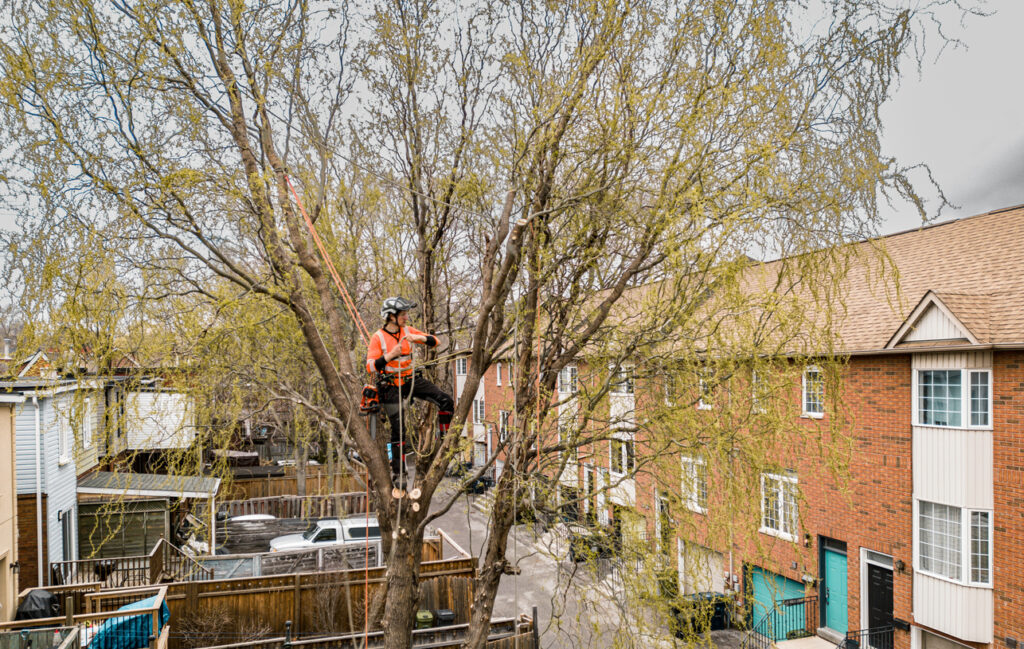
Any trees with huge branches that tend to overhang on your roof or are very close to your roof should be trimmed as they can be hazardous to your roof during a wind storm.
Install Impact-Resistant Roofing Materials
There are many good quality materials available in the market that helps in withstanding the harsh elements. When constructing your roof or replacing any parts, you must always select impact-resistant roofing materials as they can easily withstand severe weather conditions.
Homeowners can protect their properties and maintain the long-term durability and resilience of their roofing systems against the influence of strong winds and severe weather conditions by being watchful and proactive in spotting and resolving the indicators of roof wind damage. You can call WABO Roofing for professional roofing assistance for your home or building.

